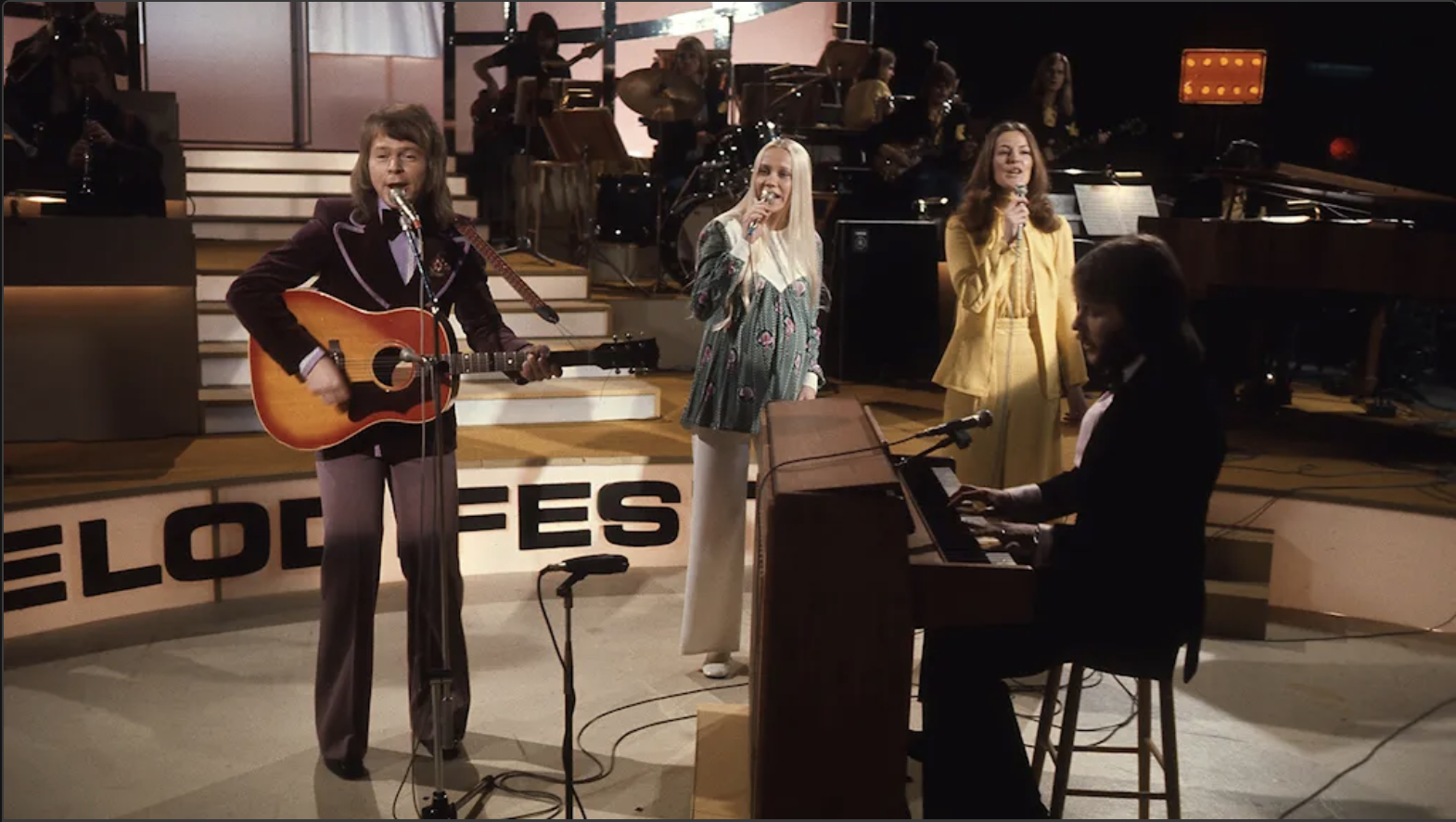Melodifestivalen 1973 (partially found Swedish TV broadcast; 1973): Difference between revisions
m (added categories) |
(added infobox) |
||
| Line 1: | Line 1: | ||
'''Melodifestivalen 1973''' (eng: The Melody Festival 1973) was the Swedish contest for representation in the Eurovision Song Contest 1973. The contest took place in the form of a TV program, broadcasted at Swedish Television (SVT) TV1 on 10 February 1973 from Studio 1 in TV-huset, Stockholm, Sweden <ref name=":0">https://mellopedia.svt.se/index.php/Melodifestivalen_1973</ref> at 20:15 (8:15 pm) CET <ref name=":1">Svenska Dagbladet 1973-02-09, page 16</ref>. | '''Melodifestivalen 1973''' (eng: The Melody Festival 1973) was the Swedish contest for representation in the Eurovision Song Contest 1973. The contest took place in the form of a TV program, broadcasted at Swedish Television (SVT) TV1 on 10 February 1973 from Studio 1 in TV-huset, Stockholm, Sweden <ref name=":0">https://mellopedia.svt.se/index.php/Melodifestivalen_1973</ref> at 20:15 (8:15 pm) CET <ref name=":1">Svenska Dagbladet 1973-02-09, page 16</ref>. | ||
{{InfoboxLost | |||
|title=<center>Melodifestivalen 1973</center> | |||
|image=ABBA in Melodifestivalen 1973.png | |||
|imagecaption=ABBA performing "Ring, Ring" in a still from Melodifestivalen 1973. Photograph by SVT Bild. | |||
|status=<span style="color:orange;">'''Partially Found/Lost'''</span> | |||
}} | |||
This contest and airing of Melodifestivalen is notorious for being one of the first major TV appearances of the Swedish pop group ABBA, as they participated under the name of "Björn & Benny, Agnetha & Anni-Frid" (they would take the name ABBA shortly after), with the song "Ring, Ring". The entry ended up at third place. | This contest and airing of Melodifestivalen is notorious for being one of the first major TV appearances of the Swedish pop group ABBA, as they participated under the name of "Björn & Benny, Agnetha & Anni-Frid" (they would take the name ABBA shortly after), with the song "Ring, Ring". The entry ended up at third place. | ||
Revision as of 10:26, 6 March 2024
Melodifestivalen 1973 (eng: The Melody Festival 1973) was the Swedish contest for representation in the Eurovision Song Contest 1973. The contest took place in the form of a TV program, broadcasted at Swedish Television (SVT) TV1 on 10 February 1973 from Studio 1 in TV-huset, Stockholm, Sweden [1] at 20:15 (8:15 pm) CET [2].
ABBA performing "Ring, Ring" in a still from Melodifestivalen 1973. Photograph by SVT Bild.
Status: Partially Found/Lost
This contest and airing of Melodifestivalen is notorious for being one of the first major TV appearances of the Swedish pop group ABBA, as they participated under the name of "Björn & Benny, Agnetha & Anni-Frid" (they would take the name ABBA shortly after), with the song "Ring, Ring". The entry ended up at third place.
The airing is one of few Swedish selection rounds to Eurovision Song Contest that has not been saved in neither the Swedish Media Database nor in the archives of SVT. Apart from stills and press photographs from the contest, only a few audio snippets of the broadcast are known to exist, as well as one short video clip. A full video recording of the program has not resurfaced.
It is not known what happened to the master tape. It is believed to have been erased by SVT, or to have been destroyed in a fire, but nothing has been confirmed [3].
All songs that participated in the contest exist on studio recordings, but most of the live material from the program is presumed lost.
Content and format
The contest was filmed in the afternoon of 10 February 1973, and broadcasted later the same evening.[3]
The broadcast was split into two pieces, with the first part starting at 20:15 (8:15 pm). The contest was (according to schedule) interrupted by news program Aktuellt at 21:00 (9 pm), after which the contest was resumed at 21:30 (9:30 pm) [2]. The program was broadcasted in color [2].
The program was structured as a competition where all entries performed their songs live together with an orchestra. Afterwards, an "expert jury" composed by musicians gave out points and in the end determined the winner. The host of the program was Swedish TV personality Alicia Lundberg.[1]
The group Malta (entry no. 9) won the contest, and went on to represent Sweden in the Eurovision Song Contest 1973.[1]
| Number | Artist | Song | Status |
|---|---|---|---|
| 1 | Lasse Berghagen | Ding-dong | Presumed lost |
| 2 | Ted Gärdestad | Oh, vilken härlig dag | Presumed lost |
| 3 | Inga-Lill Nilsson | En frusen ros | Presumed lost |
| 4 | Björn & Benny, Agnetha & Anni-Frid | Ring, Ring (Bara du slog en signal) | Audio found |
| 5 | Glenmarks | En liten sång (som alla andra) | Presumed lost |
| 6 | Kerstin Aulén & Mona Wessman | Helledudane, en sån karl | Presumed lost |
| 7 | Claes-Göran Hederström | Historien om en vän | Presumed lost |
| 8 | Lill-Babs | Avsked från en vän | Audio found |
| 9 | Malta | Sommar'n som aldrig säger nej | Short video clip found |
| 10 | Ann-Kristin Hedmark | I våran värld | Presumed lost |
Trivia
The judging by the jury caused a national outrage in Sweden by the public mass, who believed that the wrong entry won the contest. The entry by ABBA went on to be the by far most popular song in Sweden from the contest that year, and when they again participated the following year, they went on to win both the Swedish selection round, as well as the entire Eurovision Song Contest.[1] The format with an "expert jury" was discarded and never used again.[1]
The winner, group "Malta", had to change their name when participating in Eurovision Song Contest, to not be confused with the country Malta. They participated under the name "Nova".[1]
Links
- Melodifestivalen 1973 (Swedish Wikipedia)
- Sweden in the Eurovision Song Contest 1973 (English Wikipedia)
